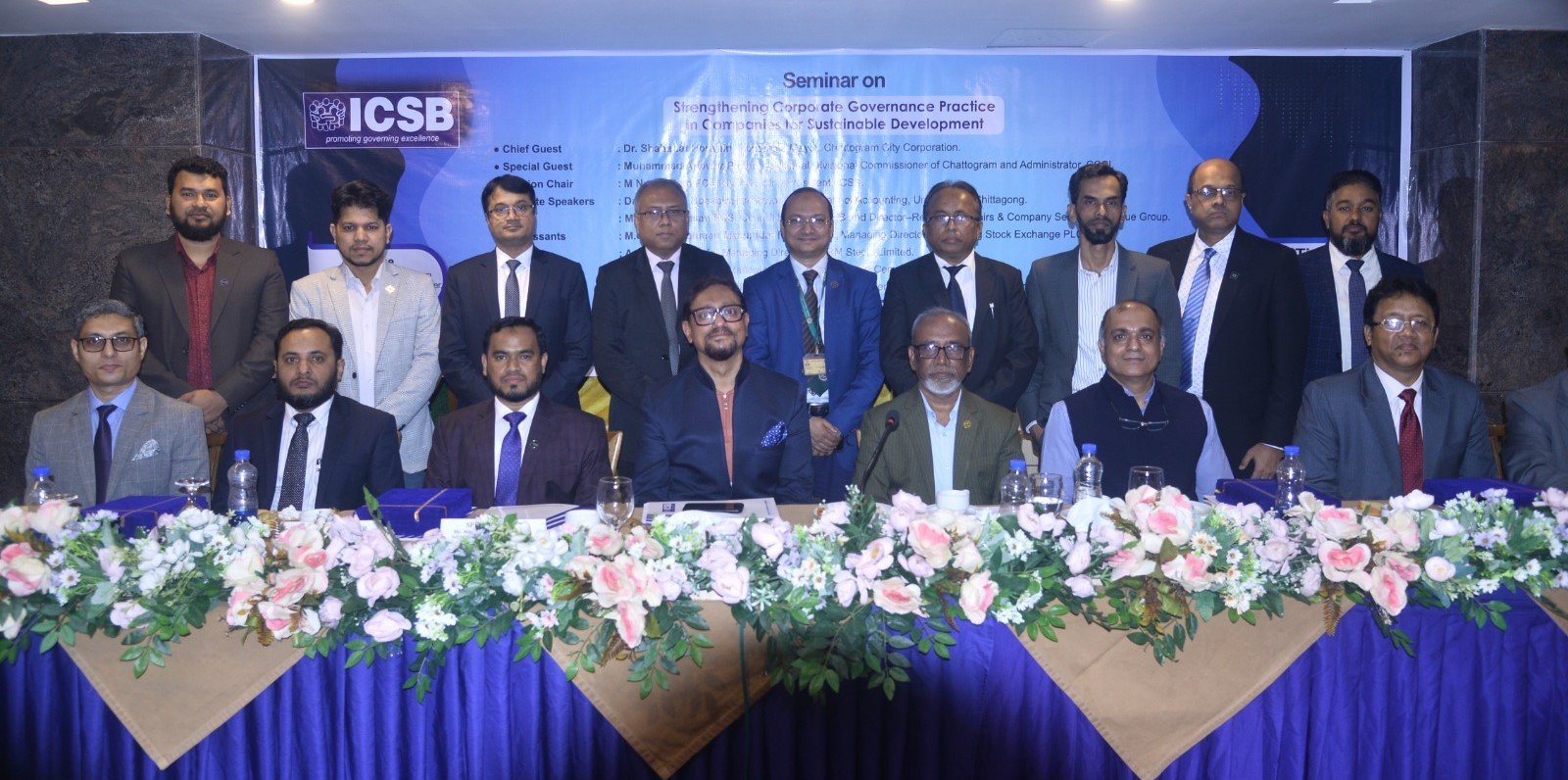News Flash
News Flash

DHAKA, Jan 24, 2025 (BSS) - Experts at a seminar laid emphasis on ensuring corporate governance in promoting transparency, ensuring accountability and aligning with sustainable development goals (SDGs).
They made the suggestion at a seminar on "Strengthening Corporate Governance Practice in Companies for Sustainable Development", organised by Institute of Chartered Secretaries of Bangladesh (ICSB) at the Best Western Sena Kalyan Sangstha (SKS) Chattogram on Thursday, said a press release today.
Dr Shahadat Hossain, Mayor of Chattogram City Corporation, graced the occasion as the chief guest while the seminar was moderated by M Nurul Alam, acting president of ICSB.
Dr Md Iqbal Hossain, Professor, Department of Accounting, University of Chittagong and Md Sharif Hasan, Council Member of ICSB and Director- Regulatory Affairs and Company Secretary of Unique Hotel and Resorts PLC (Unique Group), were the keynote speakers at the event.
Aameir Alihussain, Managing Director of BSRM Steels Limited, Zahir Uddin Ahmed, Managing Director of Confidence Cement PLC., Mohammad Shafiqul Islam Bhuiyan, Council Member of ICSB and Deputy General Manager of Dhaka Stock Exchange PLC were the discussants in the seminar.
In his speech, Dr Shahadat Hossain said that good corporate governance is essential for developing a sustainable economy and emphasized the significance of cultivating a sense of social responsibility in order to uphold the corporate governance.
He suggested ensuring good governance in public and corporate sectors.
Session chair M Nurul Alam delivered the welcome speech and thanked everyone for joining the Seminar of ICSB.
He highlighted the vital role of corporate governance in promoting transparency, ensuring accountability and aligning with sustainable development goals.
He emphasized its importance in addressing environmental, social and economic challenges while fostering ethical practices.
He encouraged active participation from stakeholders to share insights, explore innovative solutions, and promote sustainable governance for the wellbeing of the corporate domain as well as for the society.
In his keynote address, Prof. Dr. Md. Iqbal Hossain emphasized four fundamental pillars of corporate governance: adherence to regulatory requirements, equitable treatment of all stakeholders, transparency through comprehensive and accurate information disclosure, and the upholding of business ethics.
He suggested implementing rule-based governance practices in local companies, depoliticizing decision-making process, and emphasized on educating shareholders about their rights.
Md. Sharif Hasan, in his presentation, emphasized the pivotal role of corporate governance in promoting sustainability through environmental stewardship, social responsibility and ethical governance.
He described the key challenges in Bangladesh, such as weak regulatory enforcement, the dominance of family governance over corporate governance and lack of transparency.
He also pictured how the business success ratio declines with each generation, if family governance dominates over corporate structures, leading to inefficiency, lack of transparency, and weak ethical practices.
Engaging in discussion about the keynote papers, Aameir Alihussain addressed corporate governance as an essential framework.
He focused on developing good institutions, process, and standardize workplace ethics. He also highlighted the ongoing challenges faced by Bangladeshi companies in establishing an ideal corporate governance framework and expressed in a positive note that the next generation is stepping up to address them.
The subsequent discussant, Zahir Uddin Ahmed, shared his insights on corporate governance, drawing from his professional experience.
He also discussed on the factors that might impede the broad adoption of corporate governance. He also emphasized the importance of implementing corporate governance in local companies.
Mohammad Shafiqul Islam Bhuiyan mentioned that effective corporate governance is key to the long-term success and resilience of a company in the competitive business landscape. It aims to establish a framework that promotes transparency, accountability, integrity, independence and ethical conduct within an organization to ensure the holistic well-being of its stakeholders.